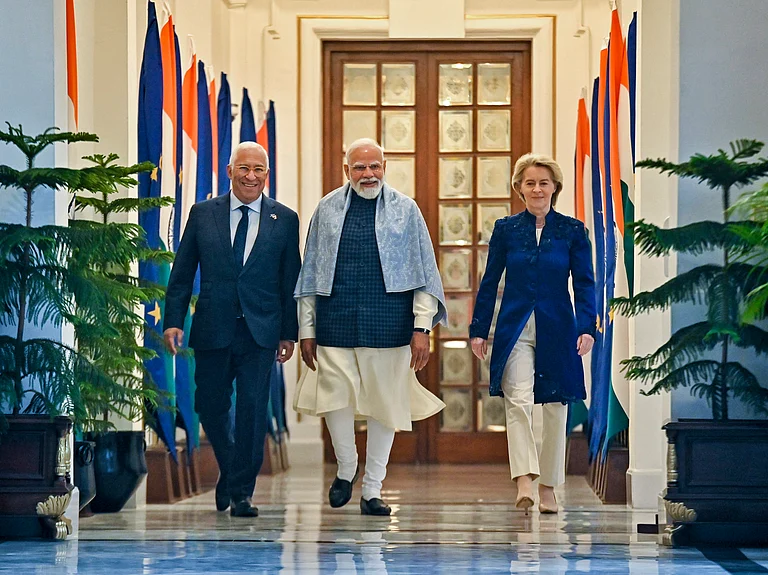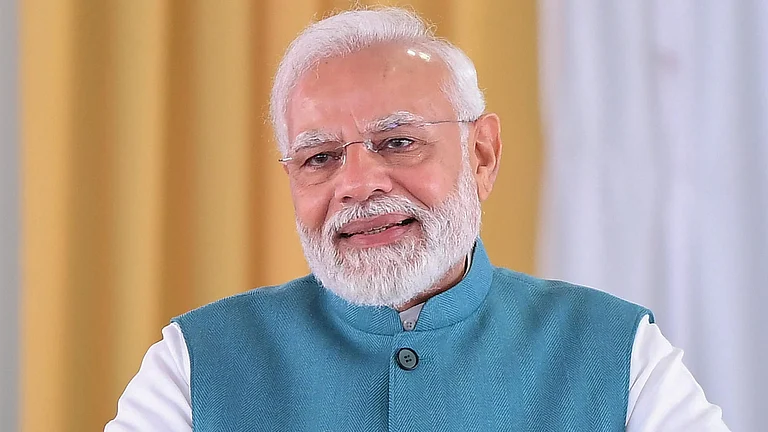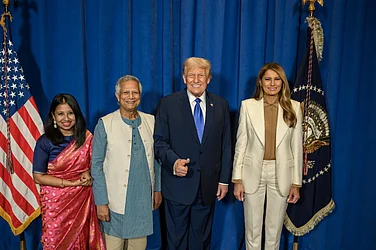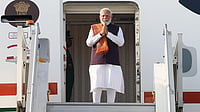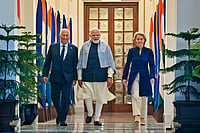The European Parliamentary elections have not thrown up many surprises. It was well known that the far-right representation in the European Parliament would increase substantially, yet the centre-right has been able to hold its own.
The far-right in Europe has been on the rise after years of being relegated to the fringes of politics, they are now coming into their own. Hungary, Italy, Slovakia, Croatia and the Czech Republic have hard line right parties in government. In the Netherlands, Geert Wilders the anti-Islamic firebrand’s political outfit is on the verge of sharing power. In Sweden the survival of the government depends on the support of the right wing members of parliament.
The EU parliamentary elections was expected to mirror this change. Mainstreaming of the far right has gathered speed in most of Europe. Back in the day, Marine Le Penn’s father and the patriarch of the far right was not able to get a single member of the party elected. Today the same party is a threat to President Macron.
Europe’s two big powers, France and Germany have seen tectonic shifts to the far right. Marine Le Penn’s National Rally has trounced President Emmanuel Macron’s Renaissance candidates in the European elections securing 30 per cent of the votes. There was a time when Marine’s father Macron has called for snap elections. Though German Chancellor Olaf Scholz has also been hit by both the Conservatives and the far-right and is under pressure to call for a fresh mandate, he has resisted it so far. Germany’s Christian Democratic Union has scored in the European elections with an impressive 30 per cent of vote share. The far-right Alternative for Germany(AFD) was second with 15.9 per cent of the votes and Scholz’s social democratic was third with 13.9 per cent of the votes.
What will this mean for Europe and the world ?
Islamophobia will be on the rise. It will be fortress Europe. The tough anti-immigrant policies already in place will get even more stringent many more incidents of drowning of desperate people in the Mediterranean waters are likely to take place. EU has already cut-back on sea patrols to rescue migrant boats making their way to European shores following Giorgia Meloni's victory in Italy. She vetoed the proposal. So for refugees and migrants coming into Europe it will be tough.
For many of the hard right parties of Europe climate change is a myth. So there will be a push back against green policies, and reluctance to act against the measures adopted to mitigate the climate change. The European Green Deal approved in 2020 is now at risk. The set of policy initiatives by the European Commission was to ensure that the EU becomes climate neutral by 2050. Europe’s Green party representation has gone down in the new parliament.
Many of the right wing parties are also against gays and lesbians. The LGBT community will not be thrilled with the results. The anti-abortion lobby will also be active. These parties are committed to upholding Christian values, and abortion is a big NO. Liberal values as a whole will suffer and EU legislations on issues of democracy and human rights will be on the back burner. The EU nations have till now been strong on human rights priding itself on setting the agenda on values of freedom and respect for every individual. Whether the EU will be forced to abandon its long tradition of holding up liberal values remains uncertain, as the centrist block remains intact in Brussels.
A Europe dominated by the far right will be more inward looking, protectionist and will tighten its immigration policies. One can expect a tightening of policies vis a vis China but this change in its political characteristic will not affect EUs relationship with the rest of the world especially India, says Anil Wadhwa India’s former ambassador to Italy.
While India may not be affected the US will not be happy with the new EU set up. Several members of the EU are decidedly pro-Russian and don’t regard Vladimir Putin as a monster. Many politicians from the right are unhappy at the stoppage of gas from Russia. They want the Ukraine war to end, and for Europe to do a deal with Putin to restore Russian gas.
"On refugees EU will get even tougher. On Russia in the context of Ukraine EU will find it difficult to be tougher with Russia. On climate change, EU will be less active. Over all, a more inward looking and rather fragmented EU deserving less the title EU,’’ says retired ambassador KP Fabian.









